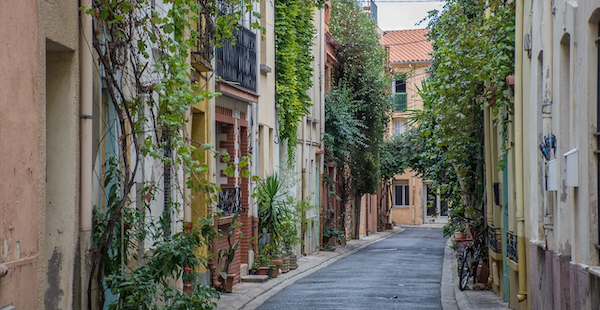
Rooted: Developing True Community
You may have physical resources, health, a great job, and lot’s of other things going well for you, but community is an intangible form of wealth that many of us lack. American society is notoriously disconnected from those around us, even as we are ‘connected’ to the fake world of the internet. This point was brought home powerfully to me as I read Them: Why We Hate Each Other – And How to Heal, by Ben Sasse. The idea got me thinking.
The Mobile, the Stuck, the Rooted
Sasse pointed out that in today’s society, there are three groups of people: the mobile, the stuck, and the rooted. Although they live in the same cities and sometimes shoulder to shoulder, their involvement in community is radically different.
The ‘mobile’ are those who are often considered successful in our society. They have great jobs, good retirement, and (often) a lot of cash. They are movers and shakers, able to find a great job in just about any city. They are ‘successful’ and know how to ‘succeed,’ but this success hides a disappointing fact: they lack strong community. Although they may have a few friends, they fail to actually form strong community. They don’t have roots in any one place, and so they lack the benefits of strong, organic, healthy relationships that develop spontaneously from continued investment in a single location. Although apparently successful, they suffer from this hidden lack of community.
The ‘stuck’ are those who seem to be on the polar opposite end of the spectrum. For the most part, they aren’t considered ‘successful.’ They struggle alone, never attaining the good job or limitless opportunities of the ‘mobile.’ Unlike the mobile, they often spend much of their lives in the same area or neighborhood. Yet, just like the mobile, they fail to actually form true community. They don’t develop the friendships and relationships that ever seem to help them, or that fulfill them relationally. These people often substitute ‘fake’ community for the real thing. Sometimes this manifests itself in being addicted to their phones. They may even know many people, but somehow, all those relationships fail to produce strong, genuine friendships that can be relied on in times of hardship, and that are actually beneficial.
The final category is the ‘rooted.’ These people may not, at first glance, seem to be quite as successful as the ‘mobile.’ They probably don’t jet around the country, or have summer condos in other cities, or have quite the range of opportunities available to them that some people have. But what they do have – and it isn’t always obvious at first – is true community. They have fulfilled lives, strong relationships, and a community that knows that supports them. They know many people, and they have friends that they can turn to in times of difficulty. If they start to go astray, these friends will correct them, and the bonds of community are so strong, that they will be protected. Other rely on them. They’ve invested in the people around them, and that investment has resulted in true community.
The Action Plan
It’s obvious, from this description, that we all want to be part of the ‘rooted.’ So how do we get there?
First of all, I think that we can find that the local church is the ideal place to begin to form this community. It’s where true community begins to flourish. Ideally, it’s small enough to not be overwhelming, but large enough to not be stifling. It’s rooted in a specific place, a locality (hence, the local church), so it isn’t some vague idea. It’s a place where we can see people weekly (or more often), celebrate the big events of our lives together, and unite around something greater than ourselves.
But I don’t think that it ends with the local church. While that’s a great starting place, it also involves the communities and neighborhoods that we live in. We should invest in the people that we live near. Get to know them. Start conversations with them. Take an interest in their lives. Meet people.
Don’t plan to move away immediately. If possible, try to remain in the same place, rather than thinking of your involvement in a community as temporary. But whether or not you plan to move away at some point, begin investing in others immediately. Don’t think, ‘at the next place that I live, I’ll start to invest in true community.’ Things might change, and you might be in your current community for a lot longer. Begin to invest now.
For myself, one way that I’ve tried to do this is to meet someone new every day. It doesn’t always happen, but it’s a great way to stop focusing just on my ‘to-do list’ and start noticing the people around me. I’ve also started to prioritize people more – to spend more time with those around me, to listen to them, to linger around in conversations, and to invest in others. I’d encourage you to try the same.



